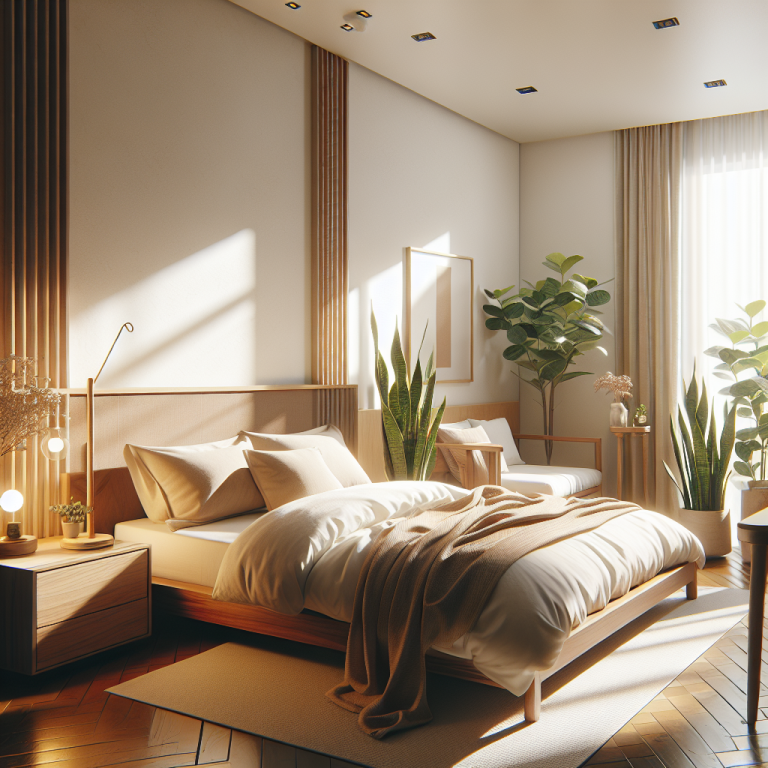Contents
- Can Feng Shui Help Alleviate Depression
- Understanding Feng Shui and Its Connection to Mental Health
- How Feng Shui Principles Can Support Mental Health
- The Power of Intention and Mindfulness
- A Personal Story of Transformation
- Frequently Asked Questions
- Q: Can feng shui replace traditional depression treatments?
- Q: How long does it take to see results from feng shui changes?
- Q: Do I need to hire a feng shui consultant to implement these principles?
- Q: Are there any feng shui practices to avoid when dealing with depression?
- Q: How can I maintain the benefits of feng shui over time?
Can Feng Shui Help Alleviate Depression
Depression is a complex mental health condition that affects millions of people worldwide. While traditional treatments like therapy and medication are essential, many individuals are turning to alternative approaches to complement their healing journey. One such practice gaining attention is feng shui, the ancient Chinese art of harmonizing one’s environment. But can feng shui really help with depression? Let’s explore this intriguing question and uncover how the principles of feng shui might contribute to improved mental well-being.
Understanding Feng Shui and Its Connection to Mental Health
Feng shui, which translates to “wind-water” in English, is a practice rooted in the belief that our surroundings significantly impact our physical, emotional, and spiritual well-being. At its core, feng shui aims to create balance and harmony in our living spaces, promoting the smooth flow of positive energy, or “chi.”
While feng shui is not a substitute for professional medical treatment, its principles can potentially create a more supportive environment for those struggling with depression. By making intentional changes to our surroundings, we may be able to influence our mood, energy levels, and overall sense of well-being.
How Feng Shui Principles Can Support Mental Health
1. Decluttering and Organizing
One of the fundamental aspects of feng shui is creating a clutter-free environment. For individuals dealing with depression, a cluttered space can often mirror and exacerbate their internal state of mind. By decluttering and organizing our living spaces, we can:
Reduce visual stress and overwhelm
Create a sense of control and accomplishment
Improve focus and clarity of thought
Action step: Start small by tackling one area at a time, such as a desk or a closet. The act of decluttering itself can be therapeutic and provide a sense of progress.
2. Maximizing Natural Light
Feng shui emphasizes the importance of natural light in creating a balanced environment. Exposure to natural light has been shown to boost mood and regulate our circadian rhythms, which are often disrupted in individuals with depression.
Action step: Open curtains and blinds during the day, and consider rearranging furniture to maximize exposure to natural light. If possible, spend time near windows or outdoors to soak up sunlight.
3. Incorporating Nature Elements
Feng shui encourages the integration of natural elements into our living spaces. Research has shown that exposure to nature and natural elements can have a positive impact on mental health, reducing stress and improving overall well-being.
Action step: Introduce plants, natural materials like wood or stone, and images of nature into your living space. Even small touches, like a potted plant or a nature-inspired artwork, can make a difference.
4. Creating a Calming Color Palette
Colors play a significant role in feng shui and can influence our mood and energy levels. For those dealing with depression, incorporating calming and uplifting colors can help create a more supportive environment.
Action step: Consider introducing soft, soothing colors like light blues, greens, or lavenders into your space through paint, textiles, or decorative elements.
5. Establishing a Supportive Bedroom Environment
In feng shui, the bedroom is considered crucial for overall well-being. Creating a peaceful and restorative sleep environment can be particularly beneficial for individuals with depression, as sleep disturbances are often a significant symptom.
Action step: Ensure your bedroom is clutter-free, invest in comfortable bedding, and remove electronic devices that may disrupt sleep.
The Power of Intention and Mindfulness
While the physical aspects of feng shui are important, the practice also emphasizes the power of intention and mindfulness. By consciously creating a space that supports our well-being, we engage in a form of self-care that can be empowering for those struggling with depression.
As you implement feng shui principles, take time to reflect on your intentions for each change. This mindful approach can help foster a deeper connection to your environment and promote a sense of agency in your healing journey.
A Personal Story of Transformation
Sarah, a 32-year-old graphic designer, had been struggling with depression for years. Despite medication and therapy, she still felt stuck and unmotivated. On a friend’s suggestion, she decided to explore feng shui principles in her small apartment.
Starting with her cluttered home office, Sarah spent a weekend decluttering and reorganizing. She was surprised by how much lighter she felt afterward. Encouraged, she continued making small changes throughout her space – adding plants, rearranging furniture to maximize natural light, and creating a cozy reading nook with calming colors.
Over time, Sarah noticed subtle shifts in her mood and energy levels. Her newly organized space made it easier to focus on work, and her peaceful bedroom helped improve her sleep quality. While feng shui didn’t cure her depression, Sarah found that these environmental changes supported her overall treatment plan and gave her a renewed sense of control over her life.
Frequently Asked Questions
Q: Can feng shui replace traditional depression treatments?
A: No, feng shui should not be considered a replacement for professional medical treatment. It can, however, be a complementary practice to support overall well-being.
Q: How long does it take to see results from feng shui changes?
A: The impact of feng shui changes can vary from person to person. Some may notice immediate improvements in mood or energy, while for others, the effects may be more gradual.
Q: Do I need to hire a feng shui consultant to implement these principles?
A: While a consultant can provide personalized guidance, many feng shui principles can be implemented on your own with research and intuition.
Q: Are there any feng shui practices to avoid when dealing with depression?
A: It’s generally best to avoid overly stimulating or chaotic elements in your space. Focus on creating a calm, supportive environment that feels right for you.
Q: How can I maintain the benefits of feng shui over time?
A: Regular maintenance of your space, such as decluttering and adjusting elements as needed, can help sustain the positive effects of feng shui.
In conclusion, while feng shui is not a cure for depression, its principles can contribute to creating a more supportive and harmonious living environment. By making mindful changes to our surroundings, we can potentially enhance our overall well-being and complement traditional treatment approaches. Remember, healing is a journey, and every small step towards creating a nurturing space for yourself is valuable.
If you’re interested in exploring feng shui further and incorporating its principles into your life, consider checking out Feng Shui Bliss for a curated selection of spiritual jewelry and accessories designed to support your well-being journey.







